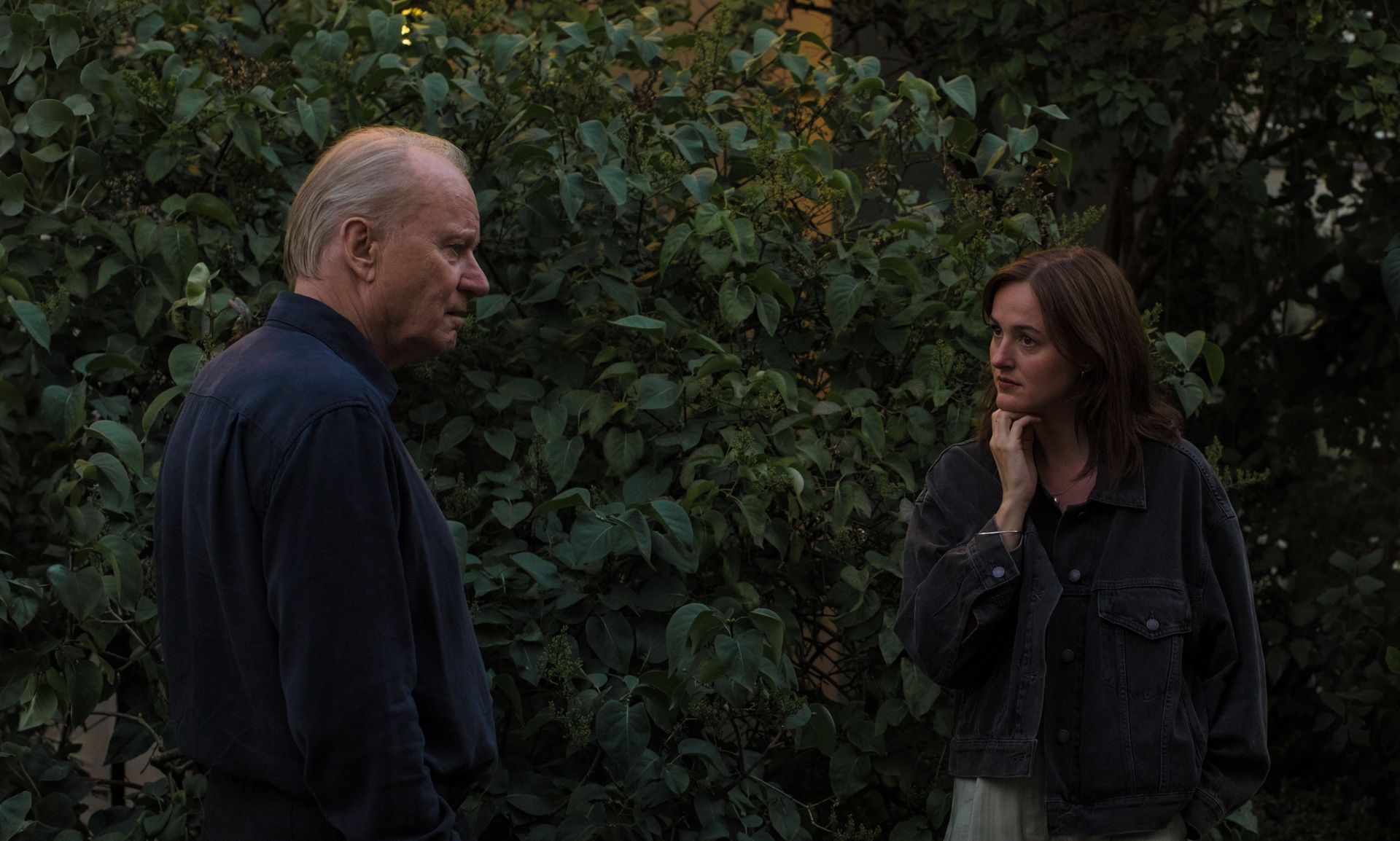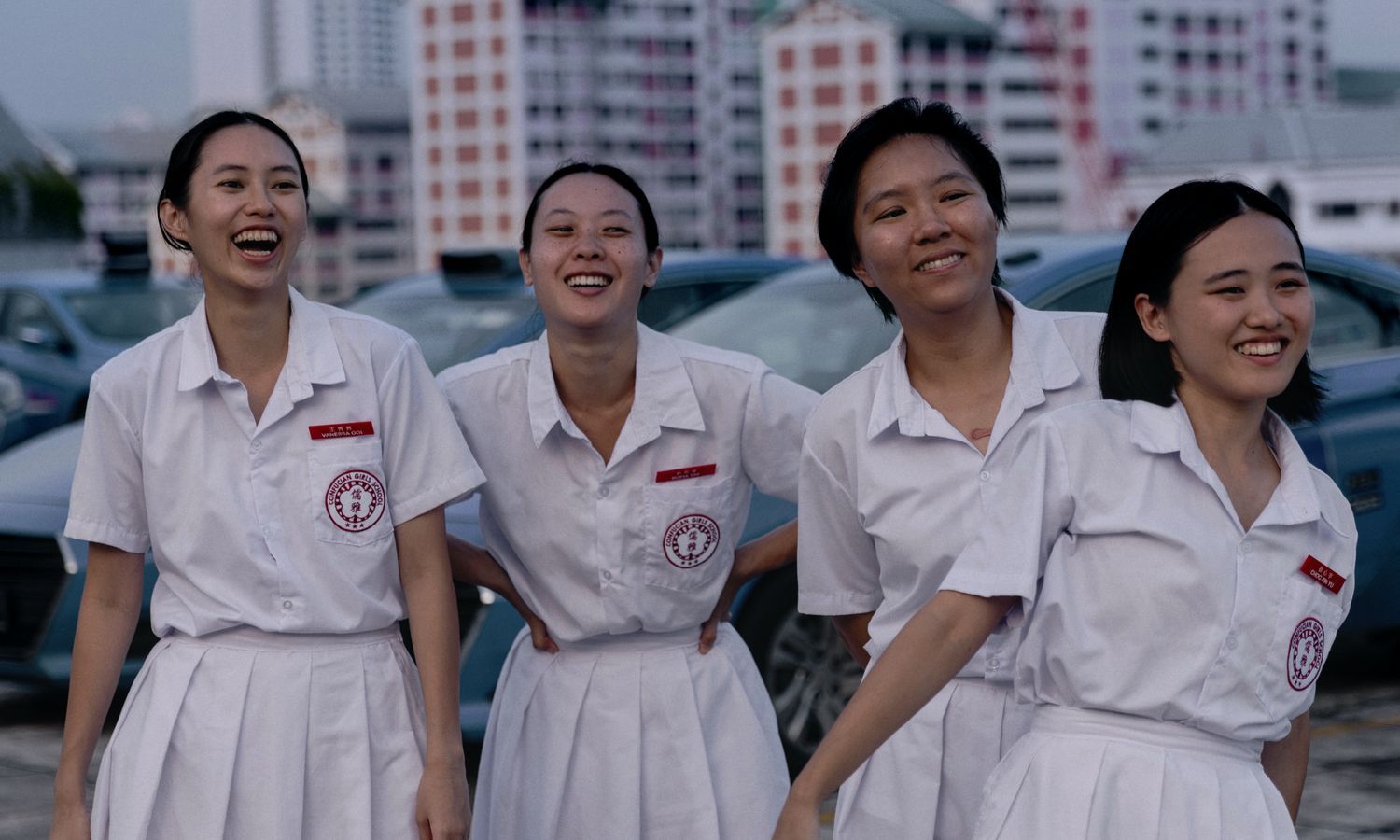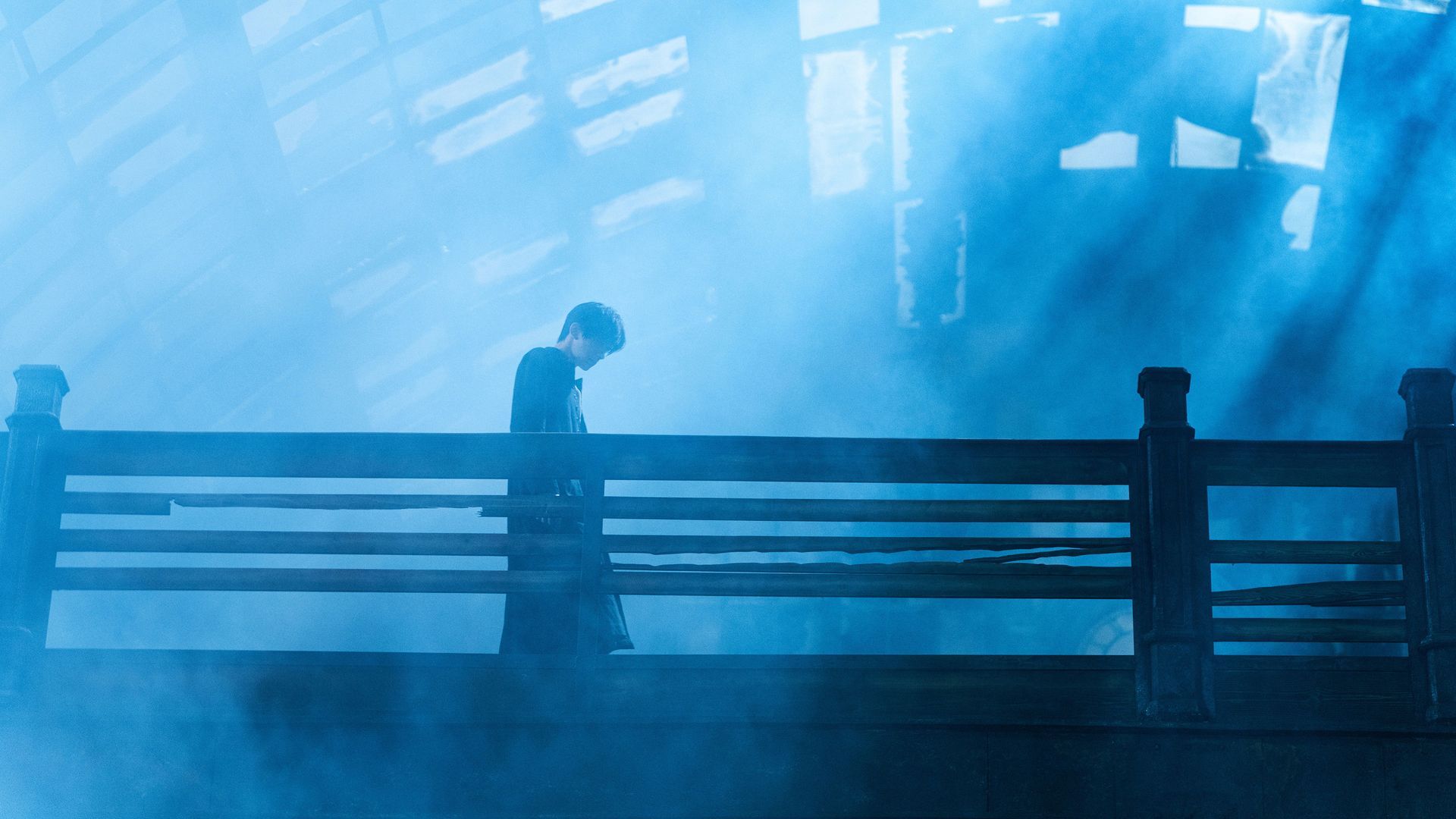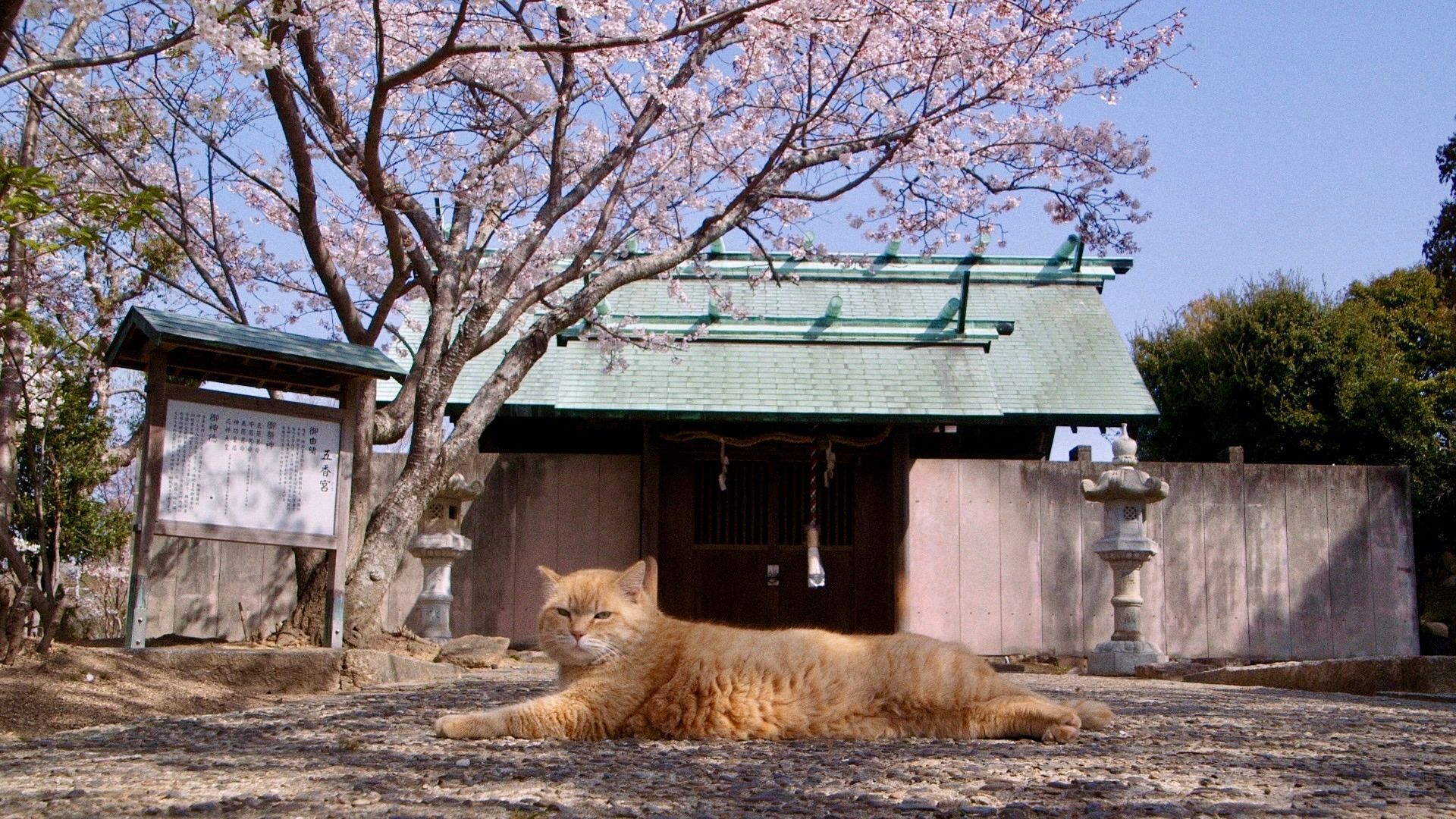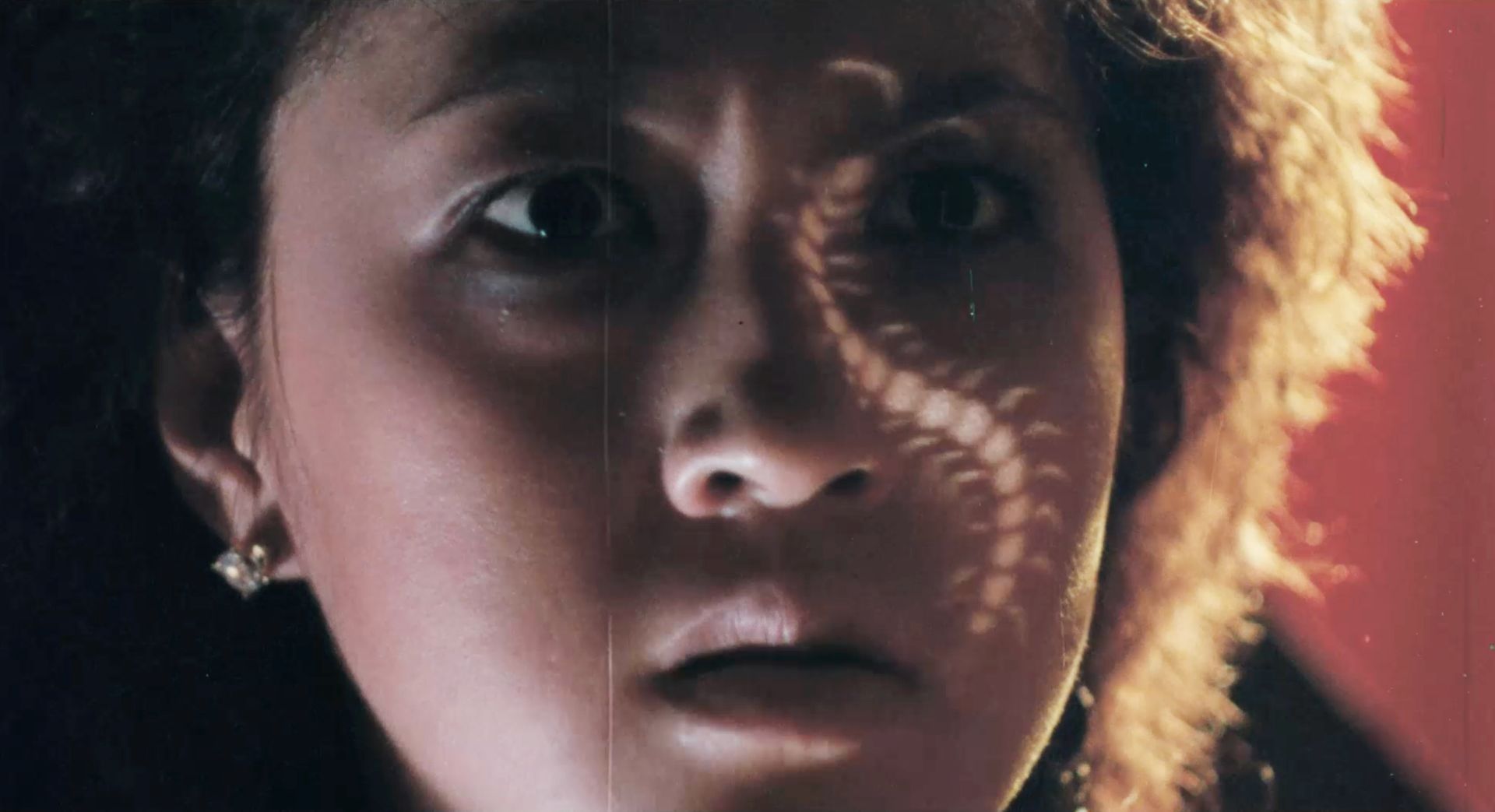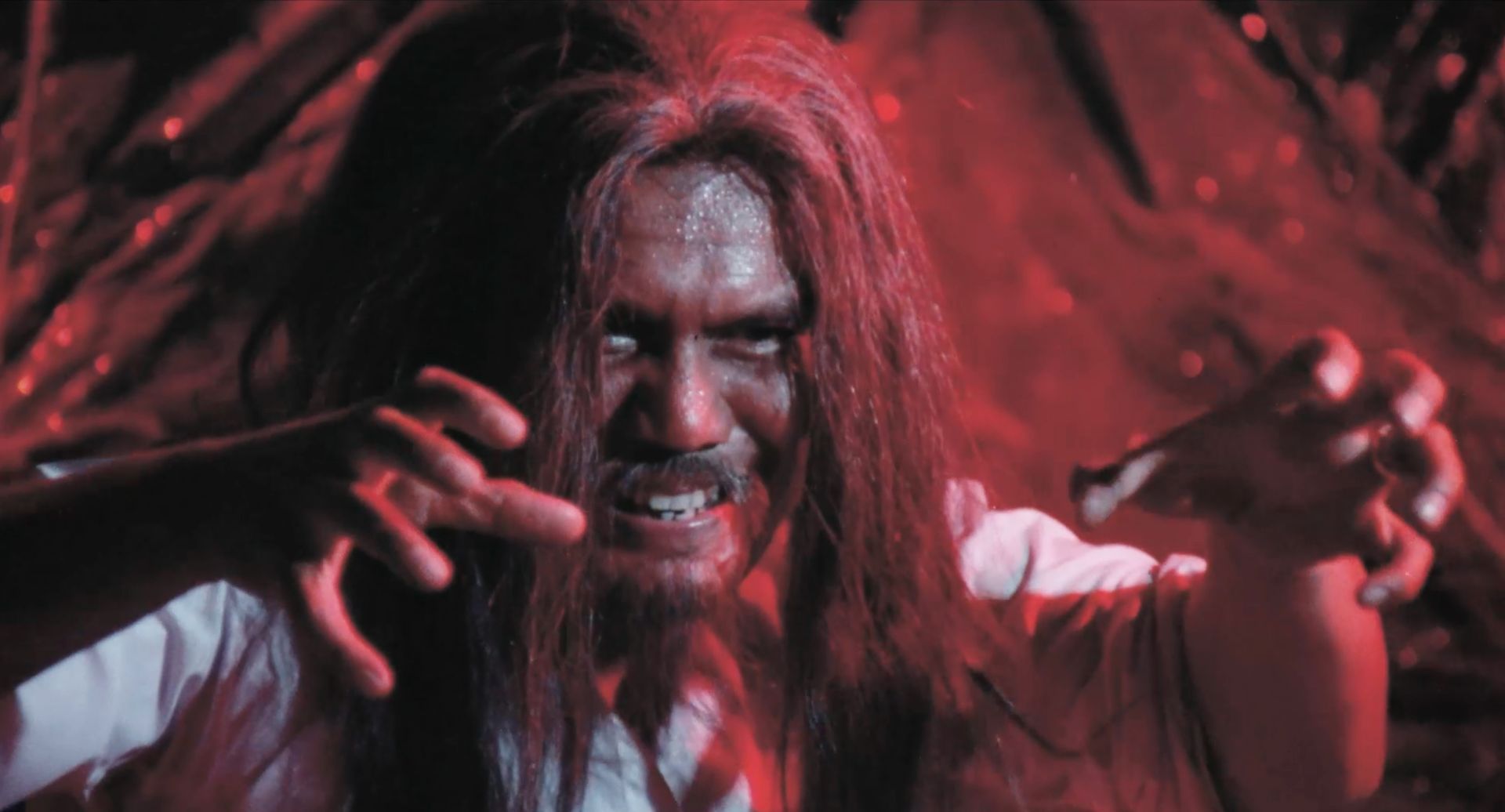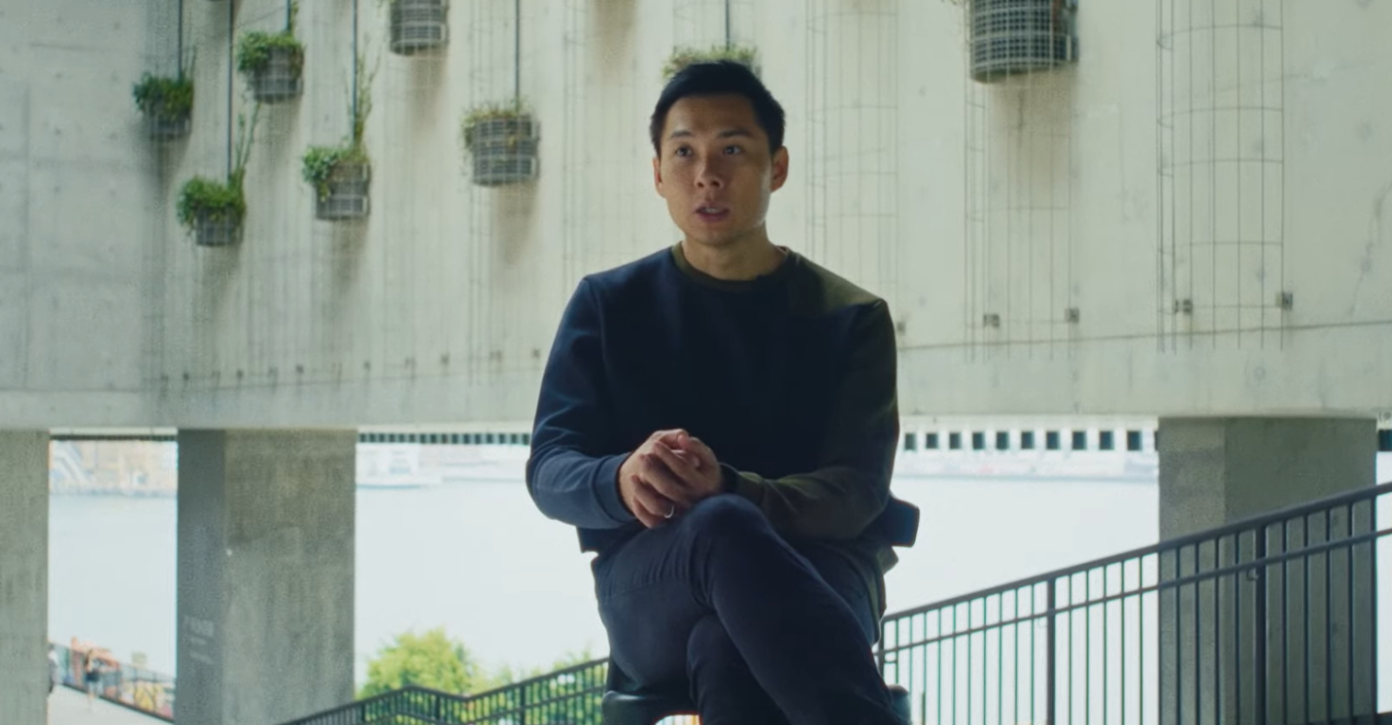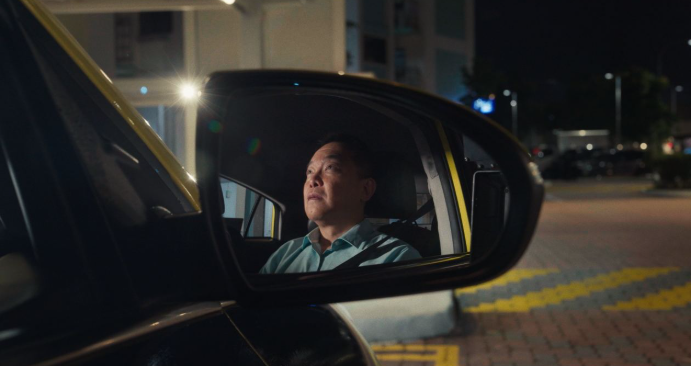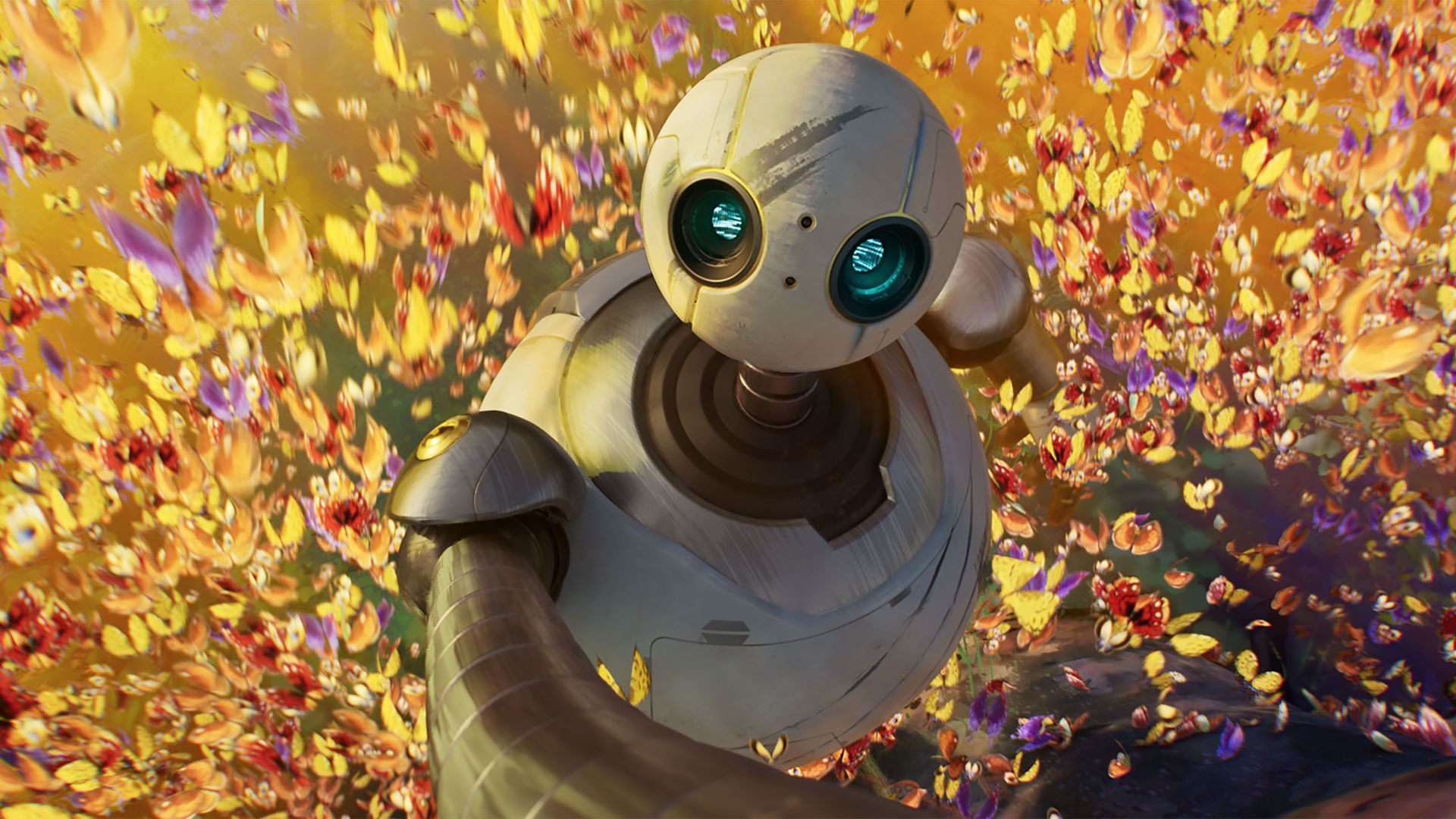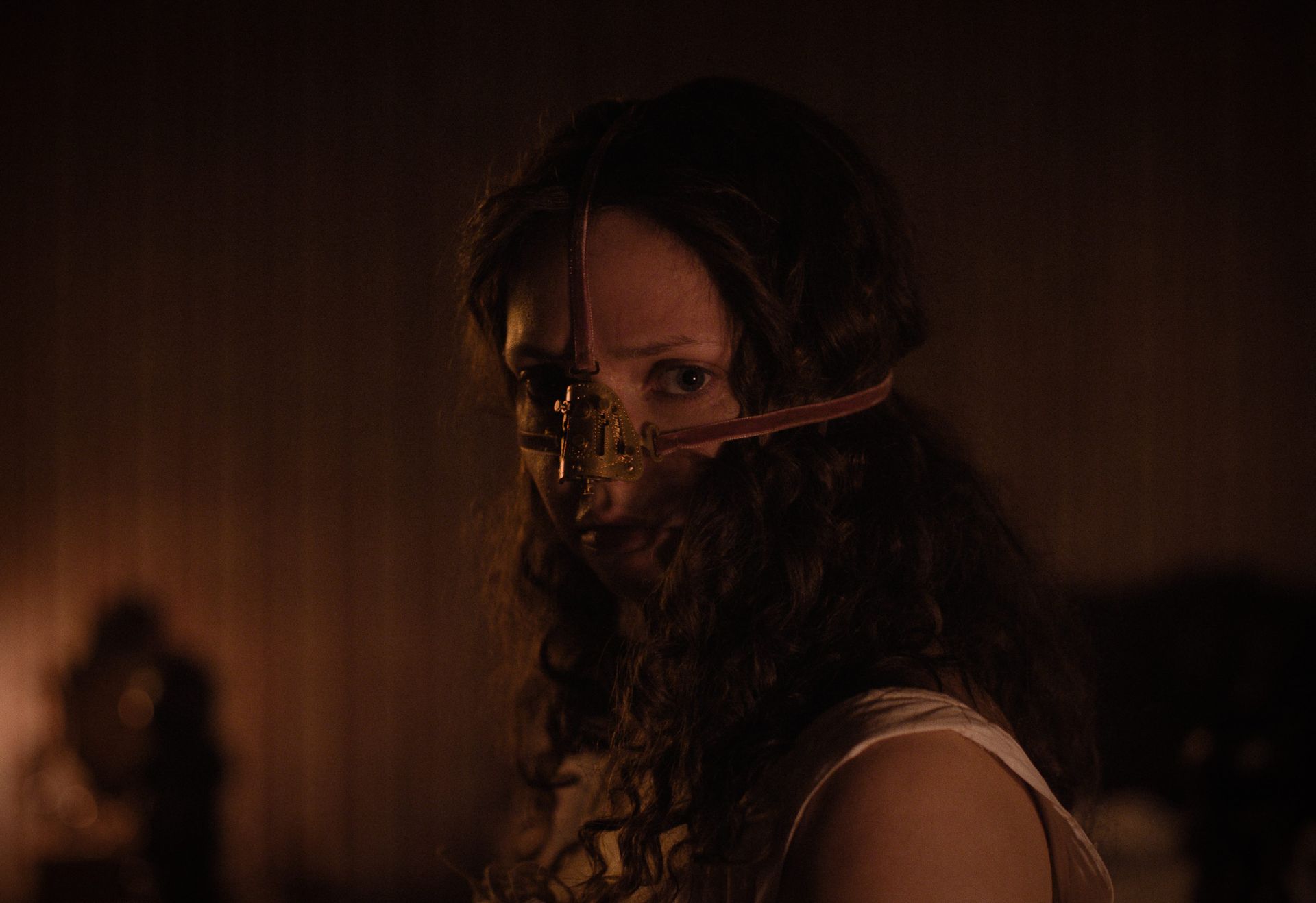Anthony Chen Breaks, Drifts, and Finds Proof
Anthony Chen Breaks, Drifts, and Finds Proof
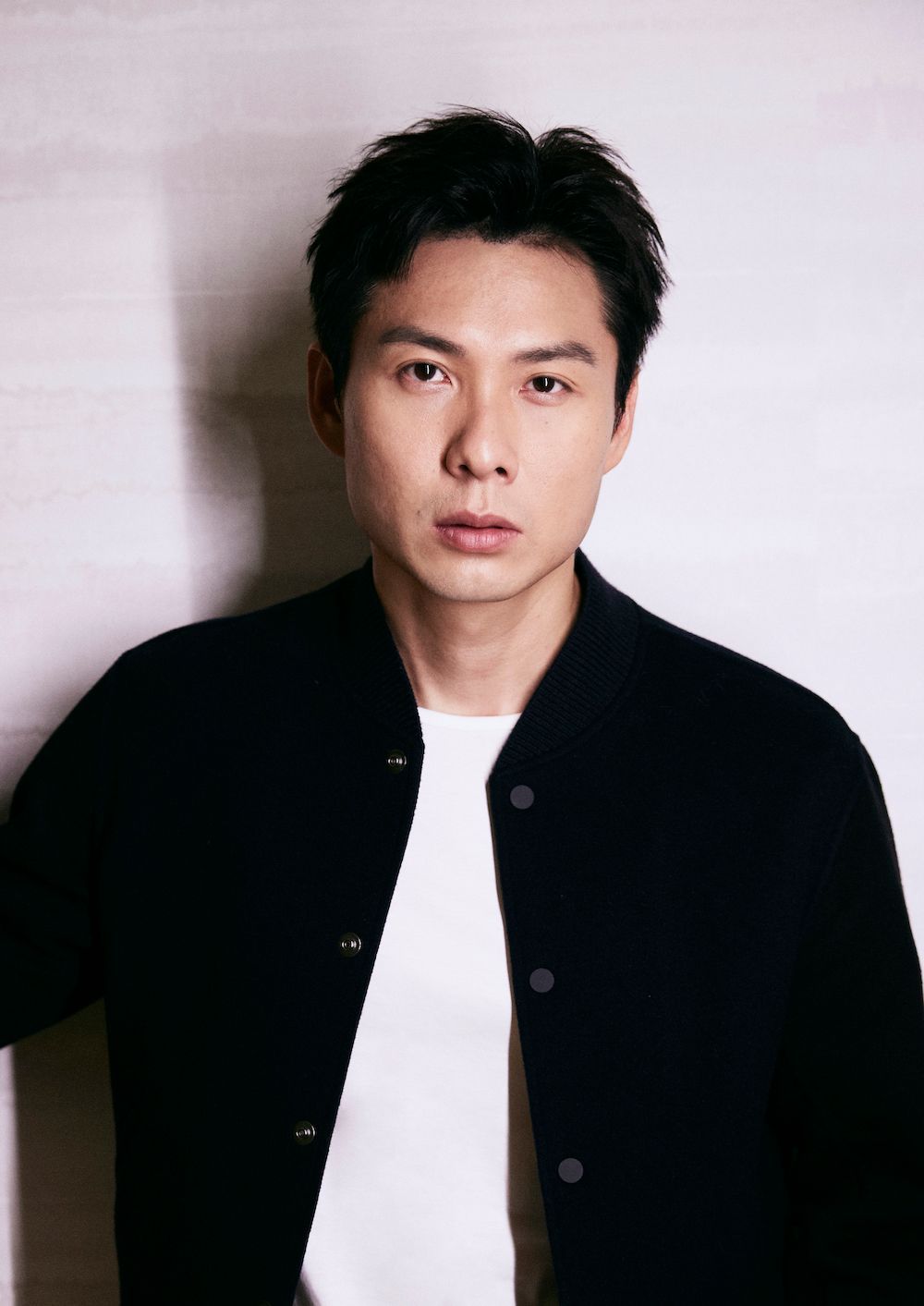
Courtesy of Anthony Chen
To get to lunch at Castle Udine, the visitor chooses between the steps in the sheltered walkway by the side or shares the open path with cars to trek up the steep incline of Europe’s largest prehistoric mound. The choice might depend on the weather, if it was raining or had rained in days past, as it did with some consistency during the 25th edition of the Far East Film Festival (FEFF).
The first time I walked up to meet He Shuming, Hong Huifang and Anthony Chen, I found myself in step with Shuming and Anthony on the open path. Everyone was taking advantage of clear skies after the rain. The trio had gathered in Udine, Italy, for the European premiere of
Ajoomma
(2022). At some point on the winding brick road, Anthony made a comment about how much he was enjoying the exertion. Taking the stairs, he said, would have made it too easy.
He
once
spoke about walking home because he didn’t have enough money to pay the fare for public transport, begging for signs that he wasn’t wrong for choosing to make films. He’s still walking, though these days, buffets at castles are on the horizon.
Some things remain the same. In 2013,
Ilo Ilo
made film history at Cannes and the Golden Horse Awards for winning the first Caméra d'Or and Best Narrative Film by a Singaporean director respectively.
Ilo Ilo
“boxed”, as Anthony says, pretty well. Still, the highest grossing film made in Singapore that year was Jack Neo’s
Ah Boys to Men 2, the first sequel to his successful
Ah Boys to Men
series. Nearly 10 years later in 2022, despite the critical success of Shuming’s
Ajoomma, produced by Anthony, Neo remains the incumbent king of the local box office¹.
Regardless, momentum must be sustained. Two days later, Anthony reappears at the top of the hill after a 3-hour Zoom call with his team to work on a script, reaffirming the relentless pursuit that is making films. His visit to FEFF is nestled between the world premieres of two of his latest feature films,
Drift
(2023) at Sundance in January and
The Breaking Ice
(2023) at Cannes in May, bringing his score at the “Big 5” film festivals (Berlinale, Cannes, Sundance, Toronto and Venice) to 3.
As we grab our plates to pile with food before settling down at a table, he tells me he is in the middle of post-production work for
The Breaking Ice
— subtitles and credits — as well as producer duties — re: scheduling, fundraising and script development — at Giraffe Pictures and he’s also leaving after lunch today for the Beijing International Film Festival to present
Drift
in China before he’s off to Cannes —
“The chicken is uncooked. Right?”
I look. It’s pink. "Oh dear."
“I’ll just eat around it.”
I bring up The Breaking Ice and he talks about the encounter with journalists at the Shanghai International Film Festival (SIFF) in 2021 that stirred a change in the way he approached making films, one that ultimately led to the making of the winter film. Then he spots the restaurant staff emerging with a tray of chicken, “I’m going to see if the chicken is ready actually.” He returns and gets right back into his account, “These journalists were saying, ‘You know, your films are so precise, the shots and script, it’s so tight and well-thought out. What’s it like if you just free yourself? What’s the Anthony Chen film that’s totally free of spending so much time crafting the script and every single frame?’ It stayed with me.”
The bells toll as we make our way down the hill after lunch back to his lodgings. Everything lines up. By the time we reach the lobby, the conversation is almost at a close. Anthony speaks to some of the filmmakers hanging around the lobby before he leaves to pack his things and returns to answer my last questions. Then he’s out of the door and into a car to the airport.
He seems at ease with it all. It might be his new approach to filmmaking and renewed confidence in his ability to tell stories beyond Singapore. There’s also the razor clarity he has towards the state of Singapore’s film industry that has found new liberties in international co-productions. Adjustments are certain and have to be constantly made, as with an openness to possibility and making peace for less than desirable results.
It’s all a day’s work for filmmaker Anthony Chen.
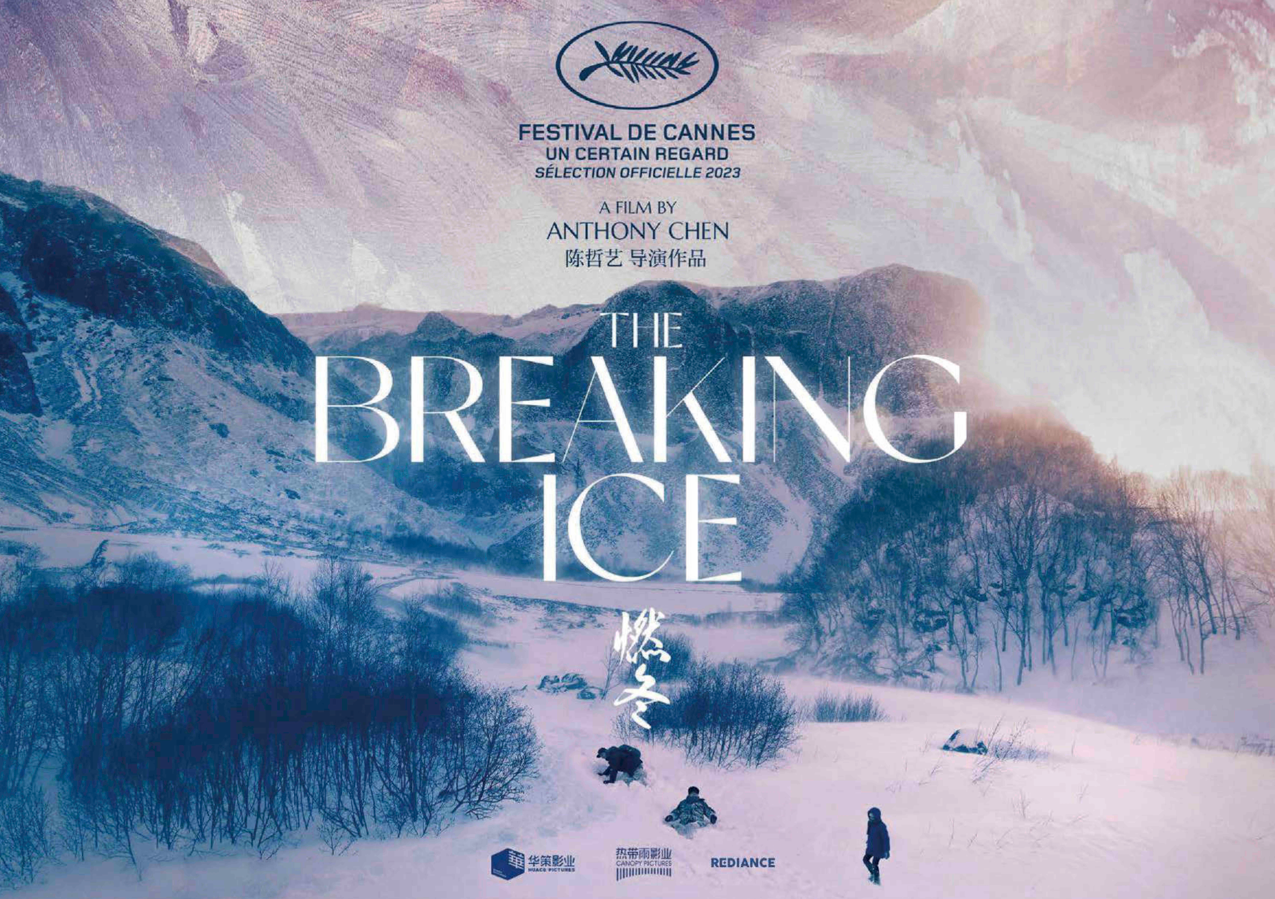
Courtesy of Canopy Pictures
The following conversation has been edited for length and clarity.
S (Sasha):
Anthony, you’ve come a long way from making short films to making a living as a feature film director. You’re now regarded as one of the mavericks of Singapore cinema, especially with regards to your continuous critical success overseas. Where do you see yourself as part of the local and international film industry?
AC (Anthony Chen):
That’s a huge question.
I wear different hats. I direct, write and also produce. I’ve worked with several Singapore directors on their films: Kirsten Tan, He Shuming, Tan Shijie.
I’m proud to be part of this new wave of filmmakers. I think it’s been quite a continuous new wave for the past ten years. Whether it’s Boo Junfeng, K. Rajagopal, Chris Yeo, Kirsten Tan and He Shuming. Our generation is… I think we’re changing the face of Singapore cinema. There’s a lot of interesting voices and they are very perceptive, authentic and honest.
I feel like I’ve come of age. The filmmaking community and the filmmakers have also come of age, and that excites me.
S:
Come of age, as in, ready to make films on a bigger scale?
AC:
Yeah! I think so. When you look at successive Singapore films, features playing at major festivals like Cannes… for a small country, it’s really quite something.
S:
Do you feel the weight of representation? That's a big word now — maybe a more accurate term might be a standard bearer of Singapore cinema and Asian cinema in general.
AC:
It’s important to continue flying the flag. But personally, I prefer to unburden myself from having that label as a Singapore filmmaker. Why can’t I just be a filmmaker? A filmmaker that makes films that speak and moves the audience.
S:
Is that part of your move away from Singapore? You’re based in Hong Kong now, working between the States, Europe and Asia.
AC:
And before Hong Kong, I had been living in London for 17 years.
(Pause.)
In recent years I’ve felt more that it’s very important for Singapore filmmakers to step out because we’re a very small population with a very small market. If you want to grow, in terms of ambition, you need to step out of Singapore.
I don’t even mean [leave] Singapore. It's just the way films are being made as international co-productions to increase budgets and get more international involvement, therefore attention. I think that’s the way out for a small country.
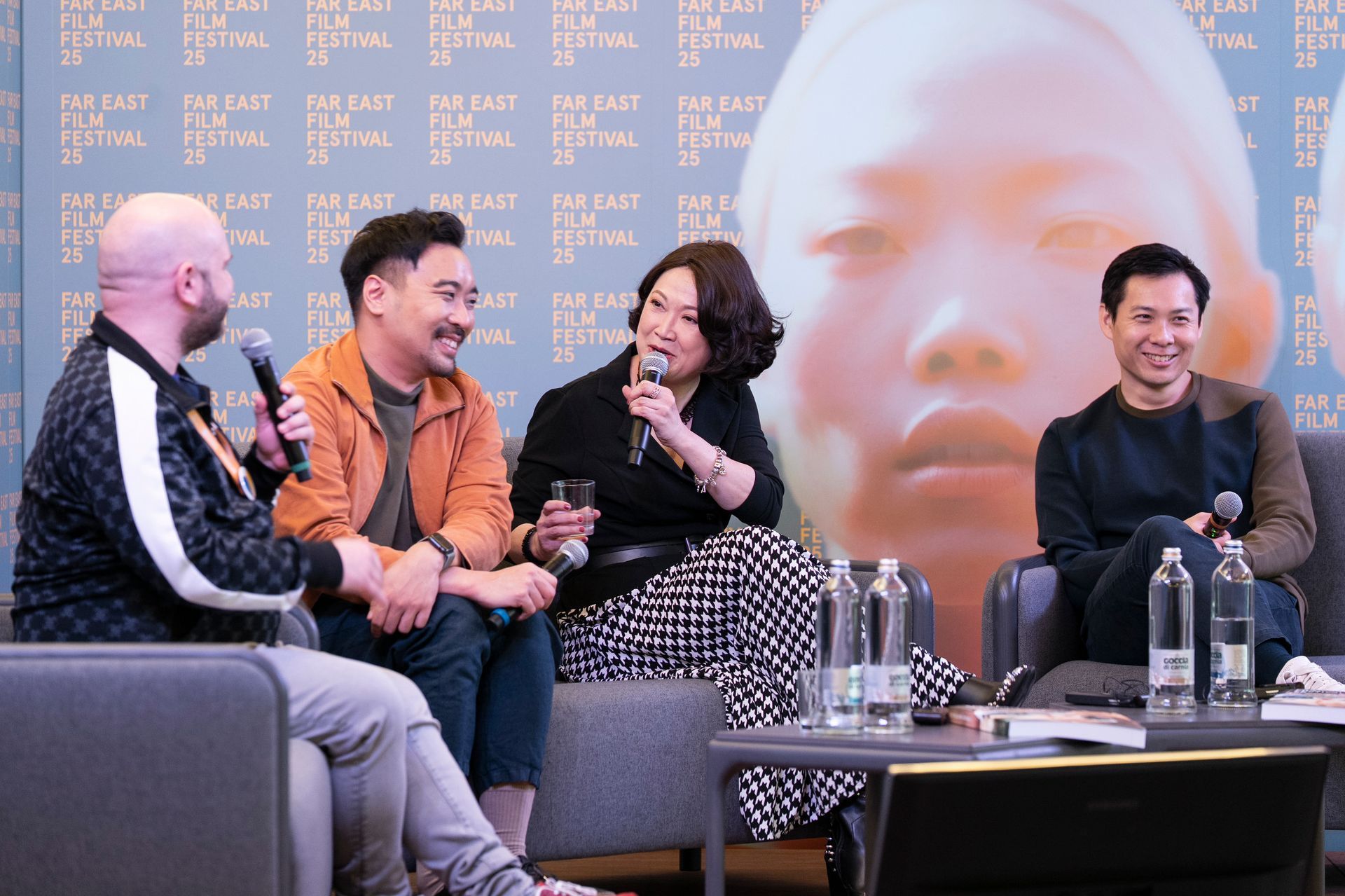
He Shuming, Hong Huifang and Anthony Chen at the Ajoomma press conference. Courtesy of Far East Film Festival.
S:
Do you feel like you’re waiting for Singapore’s audience to catch up with how good their cinema is becoming or has always been?
AC:
I'm very privileged in the sense that the films I make and produce are some of the highest boxing art-house indie films in Singapore. But that worries me as well. What about the other filmmakers? I’m constantly thinking about how to bridge the gap between filmmakers, the work and the audience, because I feel like the filmmakers have come of age but the audience hasn’t.
I don’t think we’re asking a lot from our audience.
For Singapore cinema to develop, the ecosystem shouldn’t be one between filmmakers and the funding agencies. For a national cinema to thrive, and you can look at South Korea as a very prime example, you need the entire nation — the audience — to want to rally behind their cultural products. It’s so easy to look at Korea and go, “Oh, look at what they’re doing, they’re so great!” But it was a collective effort. You might say that it’s pure national pride, though if it means we have to go down to that, why not?
It shouldn’t be on the shoulders of just a small community of Singapore filmmakers. Films are not cheap to make. To hire 30-40 people for 20-30 days and to pay them a professional wage costs hundreds of thousands, even millions of dollars. It’s hard to even convince the government, let alone private investors, of why they should continue supporting films. That's the bit I’ve been grappling with because I’m not just a writer-director, I’m also a producer. I’m in charge of getting the finances together.
[If] there’s a few years of sustainable growth at the box office, then budgets can step up. Everyone can grow and make bigger, bolder, more ambitious films. My films might be slightly challenging for some audiences, but when I produced
Ajoomma, I worked so hard to make it very accessible. It’s a film that I can sell to audiences between 7 to 70 years old. Anyone can watch it. But did many people go to the cinemas to catch it? I’m very grateful for the many that did, but it wasn’t in the numbers that I think should be the case for a film of its calibre.
S:
Your ambitions for Singapore cinema then, it's for the audience to watch local films?
AC:
Yea, and there needs to be this collective effort. It’s also about how much we really want to see Singapore stories told to a global audience.
One of the first things distributors like to ask is if the film did well in Singapore. Because if it’s not doing well at the domestic box office, why should they help to push marketing and dollars into promoting a world and a story that’s not even their own? If it’s doing so well — sure! There might be something there. But if your own people are neglecting it and not even reacting to it, it’s very hard.
It’s back to your very first question, where I see myself. It’s not so much about
me. It's about what
we
can do collectively. To be honest, I don’t have to make films in Singapore. Producing a film in Singapore is like running a charity shop. You don’t pay yourself well. On an hourly wage, you probably make more money flipping burgers at McDonald’s.
S:
$6 an hour?
AC:
Ya! Shuming’s film I worked on for 7 years you know? The total I earned as a producer is probably not even 6 months of an undergraduate's basic wage. Does the maths add up? No.
But I believe strongly that, for a country of our size, of 5 million people, we have bloody a lot of talent. It’s not the UK, with 60 million people, or China, with 1.7 billion. For a small country, it’s a lot of filmmakers doing good work and showing at top festivals.
I could beg for favours for my first film. I can’t do that now. I stand in a position where no one is going to grant Anthony Chen a favour anymore. Everyone thinks you’ve made it, you’re successful, and everyone assumes you have all the money in the world to make films. So it needs to make sense. Investors are not going to hand you the money when your forecast is a huge loss.
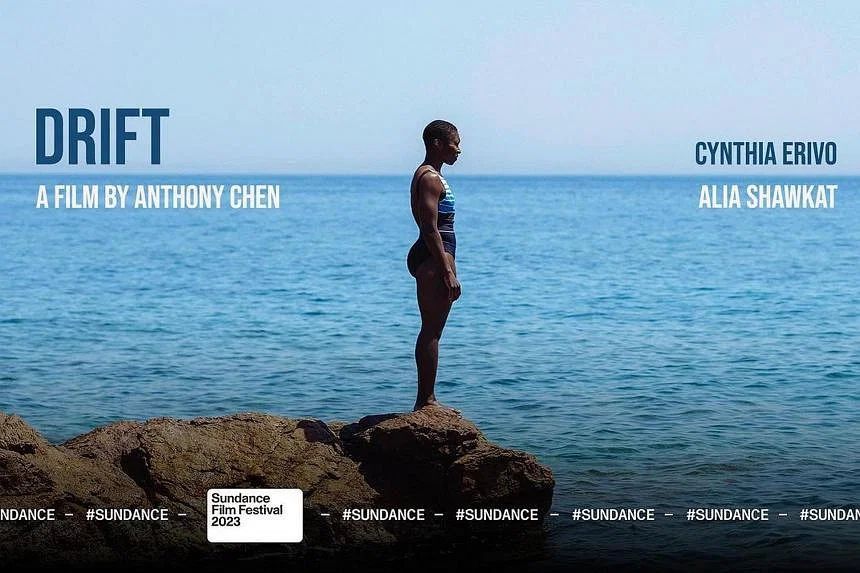
Courtesy of Anthony Chen
S:
I'd like to hear about your new films. We can start with
Drift first, then
The Breaking Ice.
AC:
Last year was an interesting year for me. I’ve also never worked so hard in my life. I shot 2 films in the span of 6 months and both were not set in Singapore. I shot
Drift entirely in Europe with a cast and crew of Americans and Europeans. I was the only Asian on set. Then I shot a Chinese film with a huge crew of over a hundred people and some of the best actors and crew, and I was the only non-Mainland Chinese.
S:
Did you feel like there was any difference – of course there’s differences in culture in the way film sets are run — but did you approach it differently?
AC:
I was really excited for both films. It reaffirmed for myself that I can tell stories that matter to me deeply in a very personal way outside of Singapore. I can tell stories about a different culture and still be able to confidently put it together. It’s great because while I’m making another film in Singapore soon, I think I’m going to make many films outside of Singapore in the future.
S:
The one in Singapore — is that the last instalment of the Growing Up trilogy?
AC:
If everything goes well, we can shoot later this year.
S:
It’s on track to happen?
AC:
It’s a story that I care a lot about and have been developing for some time, before and all through the pandemic. I’m rooting for it to happen, if that makes sense.
S:
It does. You were saying that you made
Drift
and
The Breaking Ice within a span of 6 months?
AC:
I remember wrapping
The Breaking Ice on 8th January last year and then I was in Greece recceing on 17th January. The producers were quite worried. I just went through a 38-day shoot in China and in China you don’t break. It’s full-on: you shoot 7 days straight, 12 hours and beyond.
But I was pinging with energy and anticipation in Greece. I’m in this post-pandemic, very productive phase where I don’t want to stop because before you know it, the world might just stop again for a few years and god knows what will happen next. My mind is spinning all the time and I have so much to give as a filmmaker. I’m working across many projects and anything I take on, I give my hundred percent. I’m sleeping very little.
S:
But the high of making a film makes up for it?
AC:
Which is why I’m still going. I’m not sure that I can work at this capacity and speed… as I get older.
S:
I have a question about that, but I’ll leave it until the end. What kind of concerns did you have when you made
The Breaking Ice?
AC:
At SIFF, the other thing journalists said was, “Oh, your films are so mature. If not because we know you and have met you, it looks like it’s made by a middle-age man.” Ilo Ilo
and
Wet Season, it’s family dramas and middle-age women. You’re so young, you look youthful, why don’t you make a film about young people?” I saw that as a challenge and did exactly that. This film is about young people.
S:
It’s about 3 friends.
AC:
They’re strangers. It’s about 3 people connecting for a very short number of days in the winter.
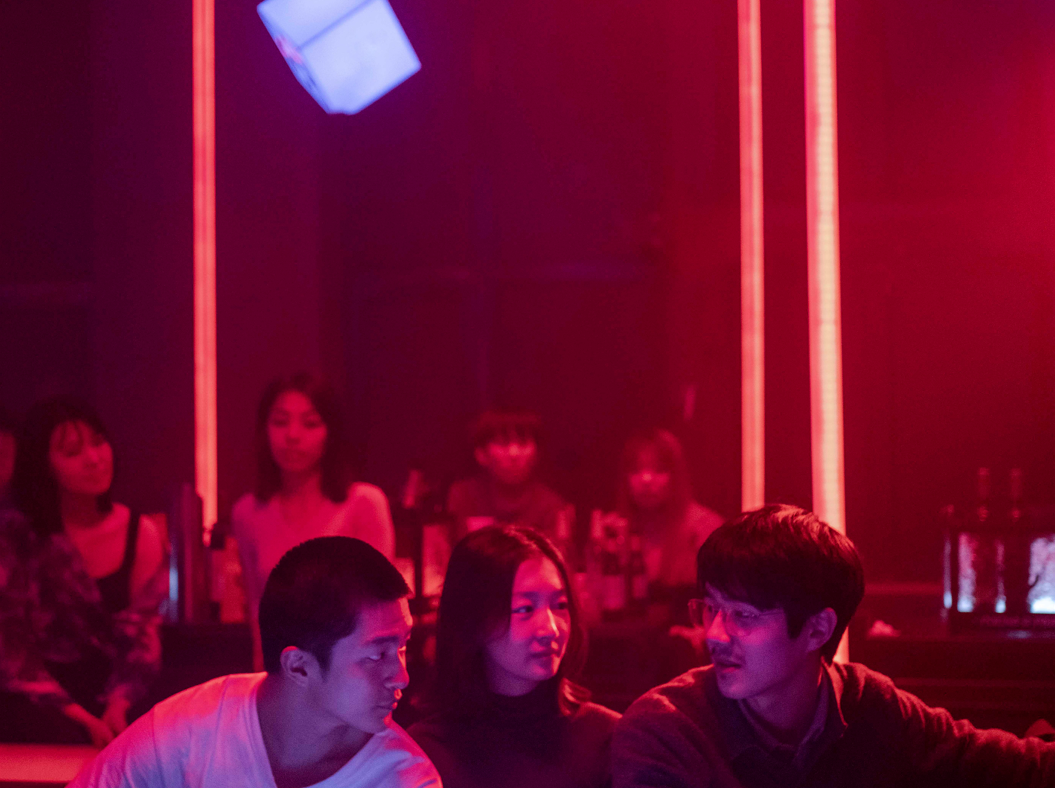
Courtesy of Canopy Pictures
S:
Did all 3 actors know each other beforehand?
AC:
Not all of them. This project was never meant to be. I was supposed to shoot
Drift
in August 2021 but one of the actresses was offered a huge Netflix film so production was postponed to January 2022. I suddenly had a lot of time on my hands but after 2 years of the pandemic, I was desperate to make a movie. I called Meng Xie and Zhou Dongyu, the producer and actress I worked with on the short in
Year of the Everlasting Storm
(2021), to ask if they would join me.
“What film? With who?”
“With me!”
“What? You’re coming back to China?”
“If I can.”
“Do you have a script?”
“No.”
“What film is it?”
“Well, I don’t know, it’s probably going to be an arthouse film. Do you want to do it?”
Everyone agreed to it like that. It was crazy because there was no story or script. In the past I would spend 3 years sculpting the script to the point where the beat, emotion and mise-en-scene of the finished film is exactly like the way it’s written. This time, I could only come up with a 2-page treatment during quarantine in China. I literally went to the heads of department and studios to pitch with this 2-pager.
Then we went to the north of China and the AD was breaking down the schedule based on this very rough treatment. 10 days before we started shooting, on the day the actors flew in, I finished the script at 8am. In the afternoon, everyone came and sat around this long table in a hotel meeting room to read the script. At that point, no one knew anything apart from my 2-page treatment. When we finished reading it, the DP and actors went, "This is pretty good."
But the dialogue lacked precision so at the end of each shooting day, I’d return to the room to edit the rushes with my editor then rewrite the scenes we have to shoot the next day. It was intense and born out of this adventure that really came because I love a challenge.
Actually, I love a challenge but I don’t really love a challenge because I’m Singaporean, and being Singaporean means you’re very risk-averse right? I usually wouldn’t do something I’m not sure about executing. Then I forced myself into a corner and put myself in the most uncomfortable situation — it was fucking -18 degrees on set — working 7 days a week, 12-15 hours a day with a 100-member crew before. Now the film is in Cannes.
S:
I’m actually quite surprised that the whole crew in China came together to rally around you and support your endeavour even when there wasn’t a script.
AC:
It’s because my films have done pretty well in China. I had some of the best crew in China on the film: the DP was Yu Jing-Pin who shot
Better Days
(2019). My production designer Shaoying Peng who worked on Luo Ye’s
Spring Fever
(2009) and
Blind Massage
(2014). The makeup and costume was headed by Hua Li, who did the design for Jia Zhangke’s
Ash is the Purest White
(2018) and Diao Yinan’s
Wild Goose Lake
(2019). I had Jia Zhangke’s sound recording team, who he worked with for over 20 years.
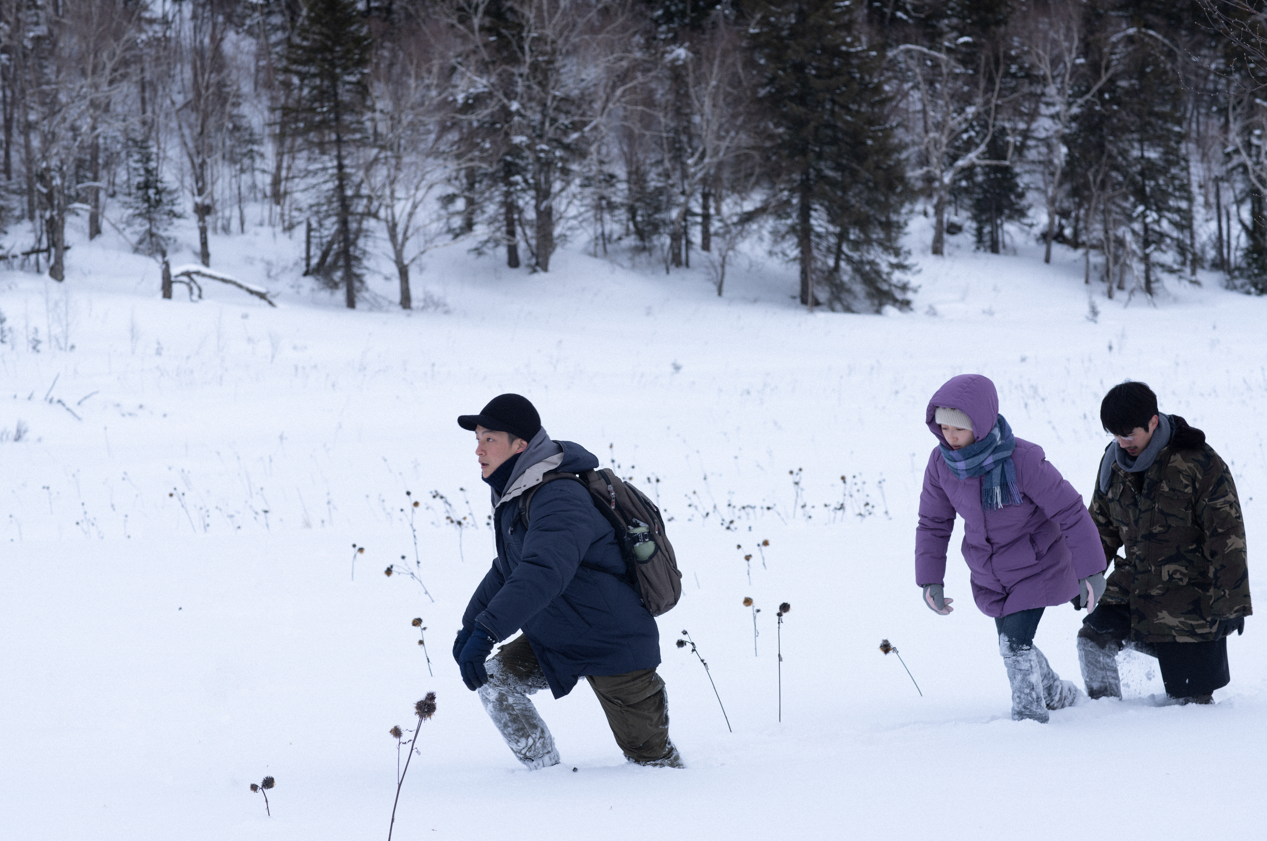
Courtesy of Canopy Pictures
S:
Do you think that how you made
The Breaking Ice
could not be replicated in Singapore?
AC:
I don’t know. The way I work has changed very much pre and post pandemic. I’m starting to do a lot of crazy things. I say that because the worst thing to feel as a filmmaker is to feel like I’ve just stopped growing and to repeat myself. Which is why I constantly want to energise myself with something else to push myself further. This morning, on the Zoom call, we were trying to develop another script I’m hoping to direct by next year. We’re forcing ourselves to finish that script by June.
I try to get everyone together now because I’ve seen that it’s possible to create things if you force yourself into a corner and try to make something work. If you keep idling away, it’s not going to happen. So no matter where I am, I do these Zoom calls with my team to discuss characters and story. We schedule meetings with strict agendas and impose deadlines on ourselves.
S:
It’s funny. The pandemic kind of opened Zoom up. Perhaps before COVID, it wouldn’t have been so easy or normal to have meetings that can take place anywhere, anytime.
AC:
Yea! I find it incredibly… liberating. I just need to take care of my body now because I’m actually overworking myself and recently I had a slip disk. Before I was in Italy I was at the doctor 4 times a week.
S:
Are you better now?
AC:
I’m alright, but I’m more and more aware of my —
S:
Mortality.
AC:
Mortality and ageing and whatever it is. But otherwise…
S:
My last question has to do with Poh Chih Leong. You were at his masterclass and you commented about him having so much energy at 83 years old, then asked if he still had another film kicking around in him. Do you think you’ll still be making films in your 80s?
AC:
I’m going to make films until I’m 95.
S:
95? That’s very specific.
AC:
Yea, I literally told my assistant director, Charlotte Lim who I always work with, I’m not sure if you’ll be dead yet but I'm going to be making films until the day I die. I just have so much energy. I’m very energised by people and ideas. The more I talk, the more it feeds me, the more alert and sharp I am. People ask how I wake up for a Zoom call at 5am and still be so sharp.
Cinema energises me. Talking about it, working on it. I feel that's the way I am. You just gotta keep going.
S:
It seems like retrospectives on Poh Chih Leong like the one at FEFF has only been done in recent years. You’ve reached a level where people are doing retrospective-type events on you now. You’re heading to the Beijing International Film Festival where they’re doing a focus on you, a mini retrospective. And a couple of years ago at SIFF…
AC:
They played 7 of my short films.
S:
How do you feel that you can already look back at your directorial practice at such a young age?
AC:
But I feel like you’re only as good as your last film. I’ve witnessed, and you’ve seen too, as a young film journalist or a young film lover, even the best directors making films where you go, oh that wasn’t very good. It’s so easy to fuck up and I’m so aware of that.
I’m very, very aware of how easy it is to let my hands off. All it takes is one scene. Then, all of a sudden you lose faith, your confidence, some assured quality, and you go, what happened here? In some films, the tone just goes off or there’s a scene where the performance is wide, and you feel like that was a save in the edit. You feel that.
So when you asked the question I thought, it’s great, but I’m so happy to have started my career very young. And I’m also very aware that I started my career very, very high. One should never assume things. The truth is it gets harder and harder, it doesn’t get easier.
S:
Because of expectations?
AC:
Not because of expectations. Because you’re never making the same film again. Sometimes you’re trying to challenge yourself technically, sometimes it’s your ambition and vision that changes. You’re constantly having to fill the gap between what you can do and what you aspire to do. Can you rise up?
It might be easier if I was just remaking my first film again and again, but I'm not. The crew, actors and subject matter are different. The way I shoot will be different. My films never look the same. But the sensibility of an Anthony Chen film is there. I’ve heard people who watch
Drift
say it’s such a different film but it’s got Anthony Chen written all over it.
S:
What do you think the Anthony Chen sensibility is? I’ve watched your films, but I’m wondering how you would characterise it.
AC:
I wouldn’t know how to describe myself. All I know is my personal taste.
I can’t see myself doing very showy stuff. Even if I’m playing with a visual idea, it’s never going to be Xavier Dolan or Yorgos Lanthimos.
I don’t like it when the camera is too invasive either. I will never make a Lars von Trier film even though I admire the mastery in his films. I won’t put my camera on genitalia just to shock people because it’s just not what I do.
One of my favourite filmmakers is Lee Chang Dong. So much with so little. Like Yasujirō Ozu. Again, so much with so little. I think that’s the essence of an Anthony Chen film.
S:
Grounded?
AC:
Yea. For me, it’s always about capturing a certain proof.
The writer would like to thank Mathew Scott, without whom she would likely have been turned away at the lunch.
-------------------------------------------------------------------------------
About the Author: Sasha seeks to reify the fugitive effects of looking through language. She received her BA in 2021 and has worked with HBO Asia, the Singapore International Film Festival and the National Archives of Singapore.
-------------------------------------------------------------------------------
¹A 2013 round-up from IMDA states, “Film director Jack Neo, whose Ah Boy To Men 2 is Singapore’s biggest box office champion.“ (https://www.imda.gov.sg/content-and-news/press-releases-and-speeches/archived/mda/press-releases/2013/singapore-film-and-television-ends-2013-with-a-hgh)
9 years later, a 2022 overview of box office revenues in Singapore reflect Neo’s reign over the Singapore’s box office. (https://www.imda.gov.sg/-/media/Imda/Files/Infocomm-Media-Landscape/Research-and-Statistics/Data-on-Singapore-Cinema/Overview-of-SG-Cinema-2022.pdf)

